Chinese technicians dispatched for Rio 'metro nanny' train service
Updated: 2014-03-24 05:58
By Zhang Fan in Beijing and Han Junhong in Jilin (China Daily Latin America)
|
||||||||
The team, nicknamed "metro nanny", has been sent by CNR Changchun Railway Vehicles Corp, or CNR CRC, one of China's biggest train manufactures and a main producer of Rio de Janeiro's urban public transportation trains.
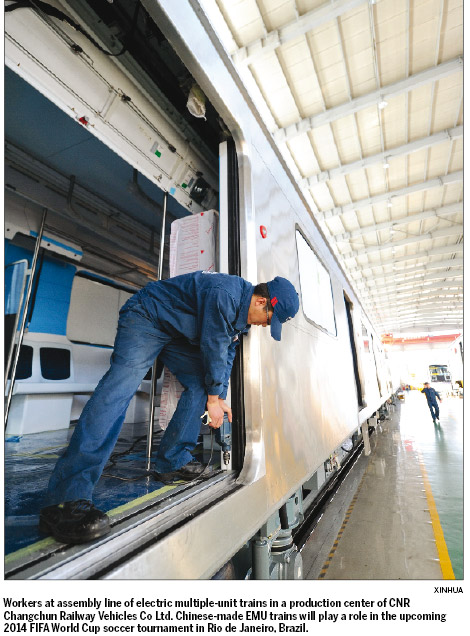
They will provide services for subway lines in Rio including technical support and logistics management, according to the company.
"We have already sent more than 20 technicians to Rio de Janeiro since 2011 to help with the technical issues of our electric-multiple-unit trains and subway trains as a part of the after-sale service," said Liu Yang, a sales manager of the company's EMU project in Brazil.
Liu said the company decided to enlarge its technician team in Rio de Janeiro because of the large number of passengers who will attend the World Cup.
"It will be one of our largest technical assistance teams in history. They are all strictly selected based on professional skills and experience, and will serve on important stations of the main line," Liu said.
According to the contract between CNR CRC and Brazil, the technician team will stay in Brazil until 2018, which means the team will also help the city deal with transportation pressure during the 2016 Olympic Games.
"We think the World Cup and Olympic Games are great opportunities to showcase the advanced 'made-in-China' vehicles and professional service to the world. We will grasp this chance and enlarge international market," Liu said.
CNR CRC entered the Brazilian market in 2009 when the company and China National Machinery Import and Export Corp jointly won a 30 EMU train-set project of the Department of Transportation in Rio de Janeiro.
After years of development, the company has established a branch office in Rio and occupied a noticeable part of the local market, making Brazil its second largest international market, behind the market in Teheran, Iran, which is also the company's first overseas market.
"The Brazilian market has large potential because most of the local urban mass transportation vehicles were produced during the 1970s and need to be replaced now," Liu said, adding that complicated tax regulations and language barriers are among the biggest challenges faced by the company.
"But we still hold high expectations toward this market, especially when China-Latin America trade is developing so fast these days," she added.
Besides CNR CRC, other Chinese vehicle manufacturers also entered the Latin America market.
Beijing-based China South Locomotive & Rolling Stock Corp, known as CSR, won a $559 million (3.4 billion yuan) EMU contract from Argentina's government last year, marking it the largest contract won by a Chinese rail transport company from the region.
Also last year, CSR won another vehicle contract from the Argentinean government for more than $1.2 billion (7.3 billion yuan).
Its rapid development in Argentina attracted the attention of international and Chinese companies alike in this field. Observers regard it as an influential step in the company's market exploration in Latin America.
Currently, about five Chinese rail transit companies have entered the region, including China International Trust and Investment Corp Construction, the construction and engineering subsidiary of CITIC Group.
"Compared with the rail transportation vehicles produced by other countries, our products are of good quality at lower prices. This is our main advantage," said Wang Falin, an official of the China Chamber of Commerce for Import and Export of Machinery and Electronic Products.
"We encourage Chinese companies to compete in the Latin America market, but such competition should strictly obey the local laws and regulations," Wang added.
Contact the writers at zhangfan1@chinadaily.com.cn and hanjunhong@chinadaily.com.cn
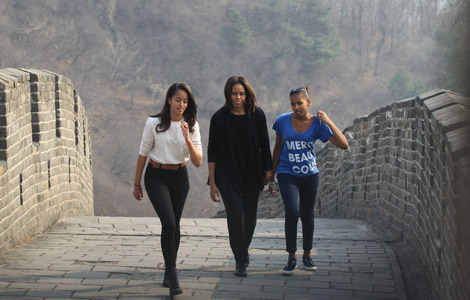
 Obamas climb Great Wall after lunch of trout
Obamas climb Great Wall after lunch of trout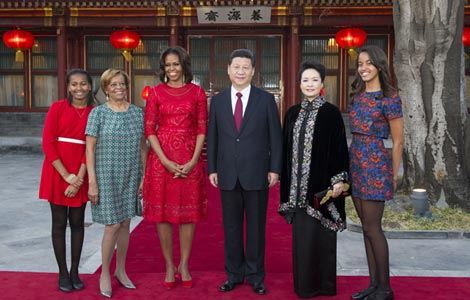
 US first lady shows character during maiden visit to China
US first lady shows character during maiden visit to China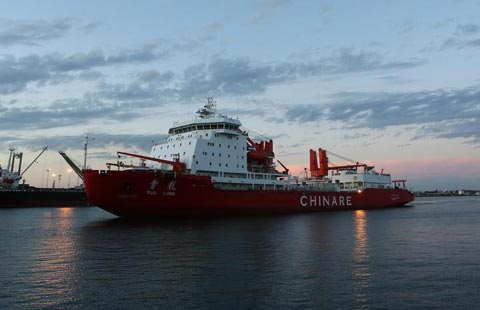
 Icebreaker heads for southern Indian Ocean for missing jet
Icebreaker heads for southern Indian Ocean for missing jet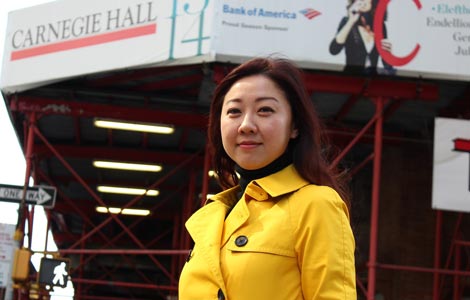
 A long musical journey to Carnegie Hall
A long musical journey to Carnegie Hall
 Balancing an egg on end during vernal equinox
Balancing an egg on end during vernal equinox
 Los Angeles County Air Show
Los Angeles County Air Show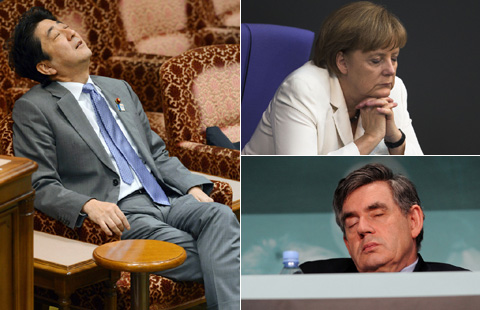
 Don't need a bed to sleep tight
Don't need a bed to sleep tight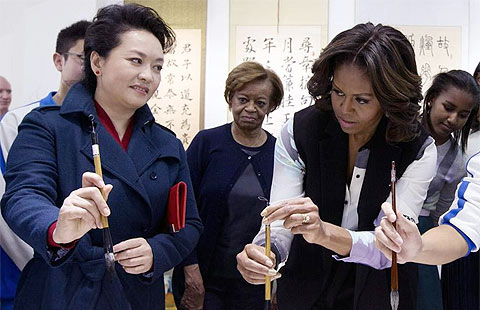
 Peng Liyuan meets with Michelle Obama
Peng Liyuan meets with Michelle Obama
Most Viewed
Editor's Picks

|

|

|

|

|

|
Today's Top News
Studying abroad remains vital ingredient of US foreign policy
Obamas climb Great Wall
First lady takes in some Peking Opera
Xi begins key Europe visit
US first lady shows character during visit
Xi sets off on first European tour
Beijing beefs up hunt for missing jet
China Southern announces Guangzhou-NY flight
US Weekly

|

|








